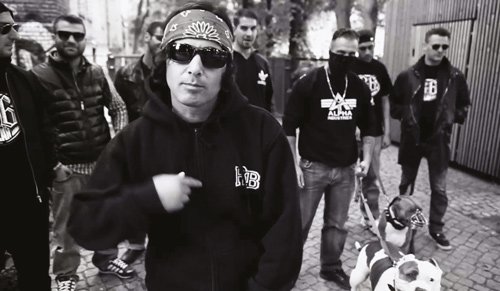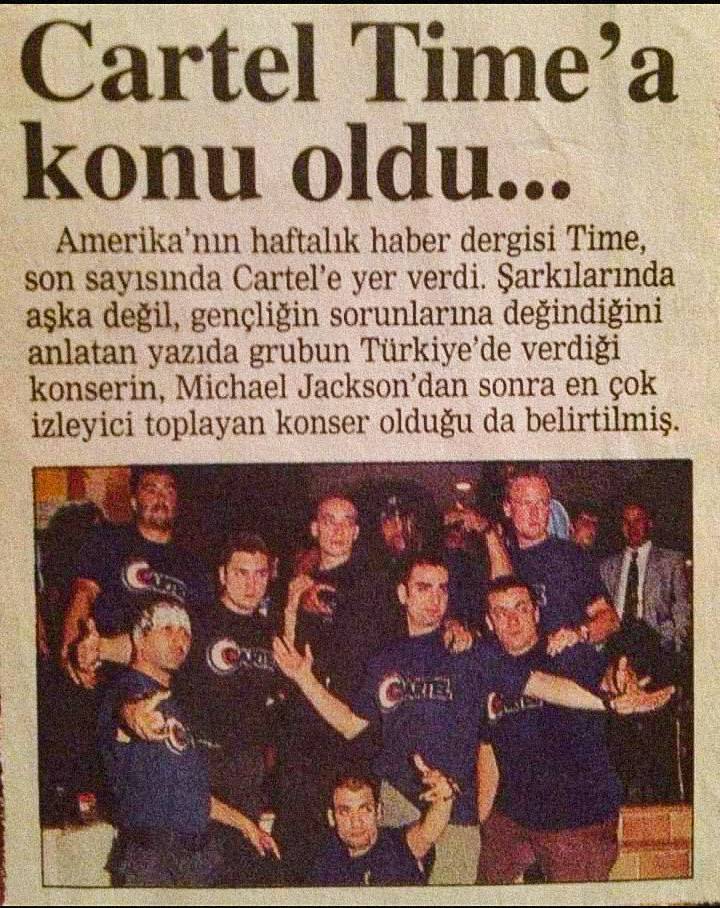In fact, it is necessary to take the story back a little further in order to understand the rap artists of Turkish origin who grew up in Germany and pioneered their congeners in Turkey. Back in the 1960s... Because the first labor migration from Turkey to Germany started in those years. A new door of hope was opened in Germany for the thousands of people who flowed from villages to cities in Turkey and struggled with unemployment, and thus the story of expatriation, foreignness, being a minority and the other began for Turks. The first generation to leave was working too hard to understand what kind of confusion they were living in. They had only one dream: to save enough money and return to their homeland as soon as possible. But as man made plans, fate wove its webs. For the workers who emigrated to Germany, the longing for family turned into an unquenchable pain, and the longing grew day by day. As such, it was inevitable that their families would gradually come to Germany. In the cities of Germany, workers' neighborhoods were formed by the Turks who came together. These neighborhoods were often places where Germans did not choose to live. One of them was the Kreuzberg neighborhood, which was built on the west side of the Berlin wall. This neighborhood, which was home to "others" who joined society later, would later witness the birth of rap music.
They fought racism
A second generation was now growing up in Germany. This generation often spent their time on the street, as their parents worked long shifts. For these ghetto children, who spent most of their days on the streets, the real test would begin with the fall of the Berlin Wall when they were a little older. On the east side of the wall were Germans who still maintained their racist attitudes. This group, which called itself "Skinheads", made threats, assaulted and harassed the Turkish neighborhood. The government of the time, on the other hand, ignored this issue and approved this persecution by not intervening in the attacks on people in plain sight. With the grief of Turkish families who lost their lives as a result of racist attacks in other parts of Germany, young people in Turkish neighborhoods in many parts of Germany began to come together and organize to put a stop to this trend. Alper Ağa, one of the members of the Cartel, recorded a song in 1991 in which he said, "Skinheads are piling up like Hitler, hitting, breaking, trampling you. So don't stop, don't shut up, don't bury yourself, don't hit him."
It was the late '80s. In Kreuzberg, right next to the wall, such a formation was formed entirely by young civilians. They first called themselves "Lightning" and then "36 Boys", inspired by the postal code of the area they lived in, 36. 36 Boys was one of the Turkish street gangs that fought against racist attacks on the streets. This gang was involved in many street battles and suffered casualties, which, as will be remembered later, were the "martyrs" of the struggle for existence here. This is how Killa Hakan later referred to his friends in One Chance: "I have seen many / brave hearts like a fighting man/oars against the gun/walls of flesh and body"
Conquest of Kreuzberg
After the great clashes, Kreuzberg, as Killa Hakan called it, was conquered by the Turks. Now the Turks had proved to all racists that they would not go anywhere from the neighborhoods they had built. With this struggle movement growing in the streets, a culture of living was slowly being built. The name of that culture was hip hop. The introduction of Turks to the hip hop music genre rap and the birth of Turkish rap would correspond to the same years.
When we look at the history of hip hop, we can better understand why Turkish youth in Germany identify with this style. Hip hop was a culture of living that was born in the black ghettos of America in the 1970s, a subculture formed within modern urban life in its sociological expression. Hip hop progressed along with rap music, grew up with fields such as graffiti art and break dancing, and over time it became a culture of reckoning with all the inequalities, injustices, poverty and colonial order on which the modern capitalist social order was built. Rap music culture was born with Kool Herc, a Jamaican who immigrated to America in the 1970s. DJs and mcs appeared first. Then, rap music developed with young people using the background of African American and Caribbean music and rhythmically reading lyrics with social criticism shaped around Islamic discourses that were common in the ghettos of the period, and especially the discourses of heroes such as Malcolm X and Muhammad Ali.
When rap music and hip hop culture began to be accepted and spread in America as a genre in the 80s, it spread to the world over time. In Germany, young people of Turkish and other ethnic origins, who were not allowed in German discos, started to go to American discos and met hip hop and rap music culture for the first time here. For Turkish youth in Germany, rap music and hip hop culture, which was the rising voice of rebellion among black people in America, was like a haven of refuge because the story was the same story. They identified the feelings of oppression, alienation and otherness that black people experienced in America with their own experiences in Germany. Thus, they decided to take their struggle on the street one step further and announce it to everyone with the possibilities of universal music.

Meeting with Turkish rap and arabesque
Rap music and hip hop culture were spreading in waves among Turks living in many parts of Germany. One of those regions was Kreuzberg. Bülent İpek – stage name Boe B., who is considered the father of Turkish rap in Kreuzberg, first won the hearts of hip hop youth with his English rap in the late 80s. Then he founded a band called Islamic Force and inspired the leading names of Turkish rap with the songs he made with this group. Later, he pulled many names out of the darkness of the street and introduced them to music. One of those names was Killa Hakan. Turning to this genre meant opening a new door of hope for many of them because they had suffered a lot of losses in street battles and had experienced and suffered from the streets in a thousand and one ways. Killa explained how they evolved from those paths to rapping:
"The roads were dark, we came
out of the darkness Everywhere we were a wild hand in confusion.
Now the flows are in place, so fresh cool
, Come close to me, snuggle softly
, we said rap, we walked, the fight was
ice in the snow and winter, Those who could not attract us first spoke and then fell silent"
In the words of Fuat Ergin, one of the rap masters who grew up in Berlin, they were the ones who started life in the second, third, maybe fourth place. They wanted to express the feeling of being always in the background in this ranking with music. That music turned them into legends. Islamic Force, the pioneer of rap music, used "sounds" from the songs of names such as İbrahim Tatlıses, Müslüm Gürses and Erkin Koray in their music infrastructure. They were also sending a nod to the anti-heroes of Turkey, the arabesque music, who were excluded and marginalized as the "dolmus music" of the 70s. This genre would later inspire many names who grew up in the slums in Turkey, such as Yener Çevik, who were also interested in rap. Thus, from the past to the present, from Turkey to Germany, and from there to Turkey again, the same story would always be conveyed to the "young people outside the circle".
Turkish rap, which grew up in Germany, has borne fruit in Turkey. In the second half of the 90s in Turkey, names such as Ceza and Sagopa began to appear underground. By the 2000s, rap music and hip hop culture would be officially recognized. The soldiers of expatriation, exclusion and street struggle in Germany have become heroes of young people in Turkey with rap music. They did not fit any of the success criteria set in front of them, but their efforts to hold on to life and their insistence that they existed in a place where they were ignored was their greatest success. If rap music comes to life as a reflection of a protest attitude in Turkey today, it was with Turkish rap that was born in Germany. Rap music, on the other hand, seems to continue its adventure as a haven for the oppressed, oppressed and those outside the circle in the world and to produce new anti-heroes because "Rap is a movement and it is also political" (Ceza, Suspus) And for many, it's still like, "What's wrong with rap?" (What's Wrong With Me?, Ceza, Sagopa Kajmer)


Follow Me